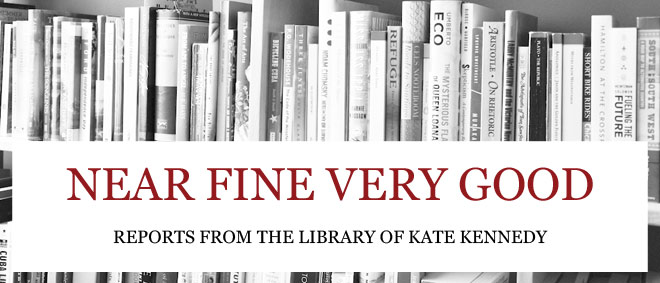
I mentioned a few posts back that I'd found an interesting limited-edition letterpress book on my visit to Powell's in Portland last month. When I pulled it from the shelf and saw the price ($9.95) I was certain I was having my own little "Gutenberg Bible at the garage sale" moment, but when I did a quick Abe search back at the hotel room I discovered that no, in fact, $9.95 was about the most any of the 350 copies in the edition were going for. That I hadn't heard of the book before should probably have been a tip-off, but I can be moronically optimistic at times. However, both the subject and the publisher interest me, so I'm pleased to have it anyway. (And if I ever need ten bucks...)

The book opens with not one but three introductions explaining the source of the narrative and the various people involved in bringing it back into print. Briefly, W. Champness recorded his impressions during a relatively short stint (he leaves England in the spring and is back in Victoria by December) in the Cariboo and had them published serially, along with sketches, in the April 1865 issues of a weekly magazine called The Leisure Hour. In the late 1960s/early 70s Gordon Bowes of the British Columbia Historical Association initiated a project to have Champness's articles reprinted in book format, and approached Glen Adams of Ye Galleon Press in Fairfield, Washington, whose workshop press was in the business of bringing back into print these sorts of things. The book was released in 1972, as far as I can tell in the edition of 350 that I have, and in a slightly less limited edition of 1,000 though I haven't yet been able to determine what the difference between those two might be.

Champness and his nephew travelled from England by boat to the Panama Canal, then by rail, then by steamer ship up to San Francisco, then to Victoria, across to New Westminster, then by boat up the Fraser River, and then on foot with pack horses into the Cariboo. Their guides and supplies for the last part of the trip came from Lillooet (which Champness spells Lilooett), my hometown. He writes a lot about expenses. The further into the interior the party goes, the more expensive everything becomes, which was no doubt part of the reason his time in the Cariboo was so short. Their group spent a total of two weeks at their destination, Antler Creek, and Champness dedicates just one paragraph to it! But the trip back to the coast is quite interesting in terms of his observations about the settlements and his predictions for their growth. And at Lytton they are invited to spend the night in a pit house, which he describes in (for him) quite a bit of detail.
So, not exactly the serendipitous rare find I thought at first, but definitely something I'm glad to have around, and from a printer I'd been curious about.
